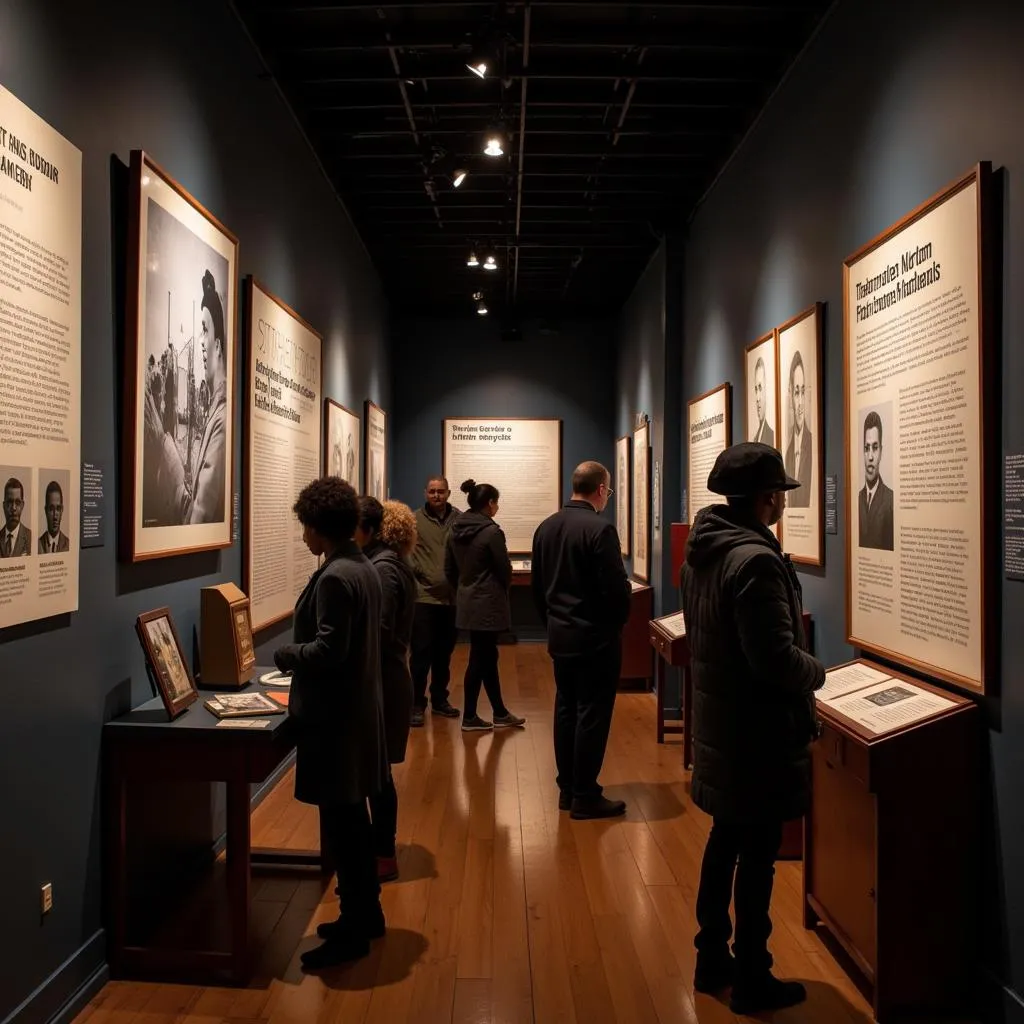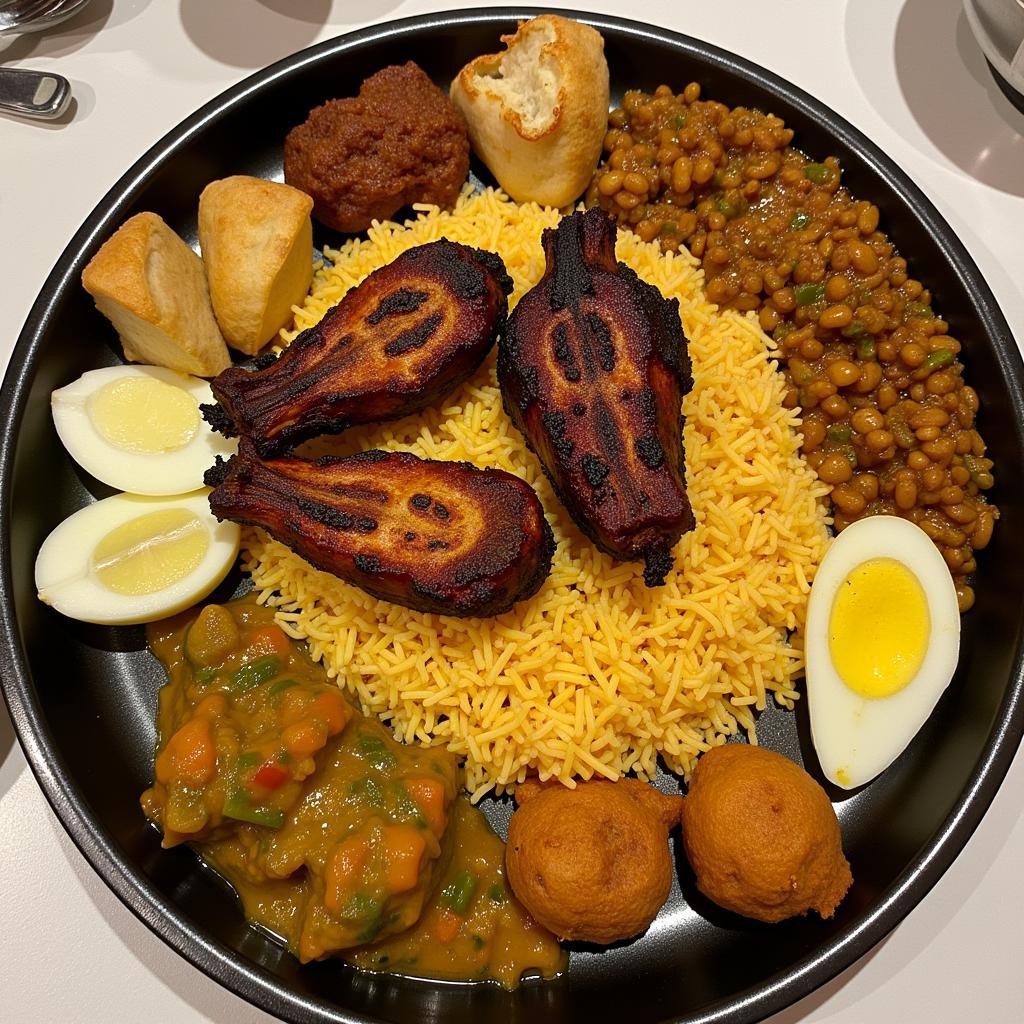The African Blackman in Suit: A Symbol of Modernity, Success, and Style
The image of an African Blackman In Suit evokes a powerful sense of confidence, ambition, and success. More than just a sartorial choice, the suit represents a complex interplay of tradition, modernity, and identity for African men. From the boardrooms of Lagos to the streets of Cape Town, the suit has become a powerful symbol of the new Africa – a continent on the rise, driven by a generation of young, educated, and ambitious individuals.
The Historical Significance of the Suit in Africa
The suit, a Western garment with a long and intricate history, arrived in Africa with the advent of colonialism. Initially seen as a symbol of power and authority reserved for the colonial elite, the suit gradually became adopted by African men as a means of assimilation and advancement.
During the struggle for independence in the mid-20th century, the suit took on a new meaning. African leaders such as Kwame Nkrumah, Jomo Kenyatta, and Nelson Mandela donned suits to project an image of modernity and equality on the world stage. The suit became a symbol of their aspirations for a free and independent Africa, one that could stand as an equal among nations.
The Suit as a Mark of Achievement and Professionalism
In post-colonial Africa, the suit has retained its association with power and success. In the corporate world, the suit is seen as a mandatory uniform for men, particularly in high-level positions. A well-tailored suit conveys a sense of professionalism, competence, and trustworthiness. It’s a visual signal that the wearer is serious about business and has the skills and ambition to succeed.
Beyond the corporate sphere, the suit is also worn for special occasions such as weddings, graduations, and religious services. In these contexts, the suit represents a mark of respect, formality, and celebration. It’s a way for African men to honor tradition and show that they are part of a larger community.
The Evolution of the African Blackman in Suit
While the basic silhouette of the suit has remained largely unchanged, African men have found unique ways to personalize and adapt it to their own cultural contexts. Bold colors, vibrant patterns, and bespoke tailoring have injected a fresh and dynamic energy into the classic garment.
From the “Dandies of Congo” who use their sartorial choices to express their individuality and creativity to the “SAPEurs” of Brazzaville who view fashion as a form of art and self-expression, African men are redefining what it means to be stylish and sophisticated.
Frequently Asked Questions about the African Blackman in Suit
1. Why do African men wear suits?
African men wear suits for a variety of reasons, including professional success, social status, special occasions, and personal style. The suit represents a complex interplay of tradition, modernity, and identity in the African context.
2. What is the significance of the suit in African culture?
The suit holds a unique significance in African culture, symbolizing not just power and achievement but also the aspirations of a continent striving for progress and recognition on the global stage.
3. How has the suit evolved in Africa?
The suit has evolved significantly in Africa, with designers and individuals incorporating local fabrics, patterns, and tailoring techniques to create unique and stylish looks.
4. What does the future hold for the African blackman in suit?
The future of the African blackman in suit is bright. With a growing middle class and a burgeoning fashion industry, African men are set to continue pushing the boundaries of style and self-expression.
Conclusion
The image of the African blackman in suit is a powerful testament to the continent’s resilience, ambition, and evolving identity. It represents a new generation of African men who are confident, successful, and stylish.
For support, contact us at Phone: +255768904061, Email: [email protected], or visit us at Mbarali DC Mawindi, Kangaga, Tanzania. We have a 24/7 customer service team.


